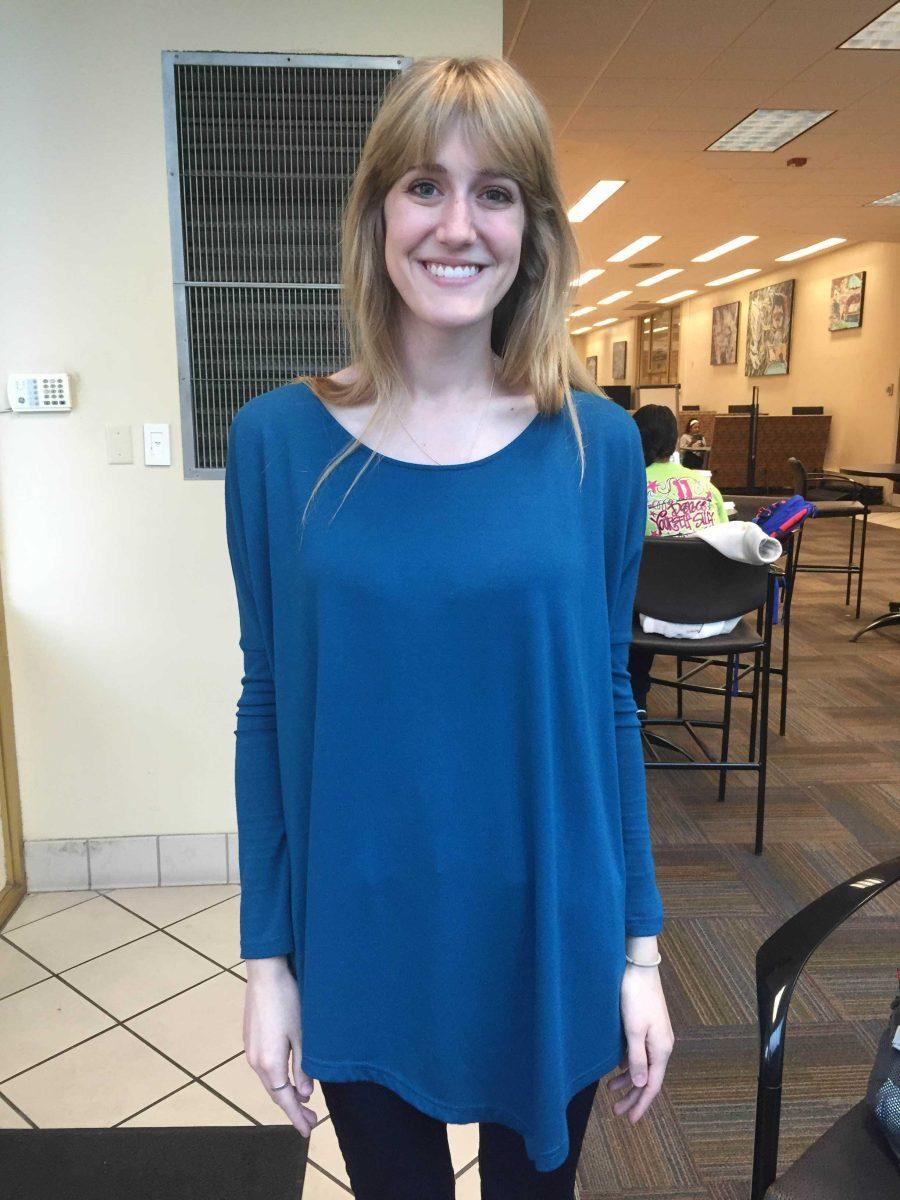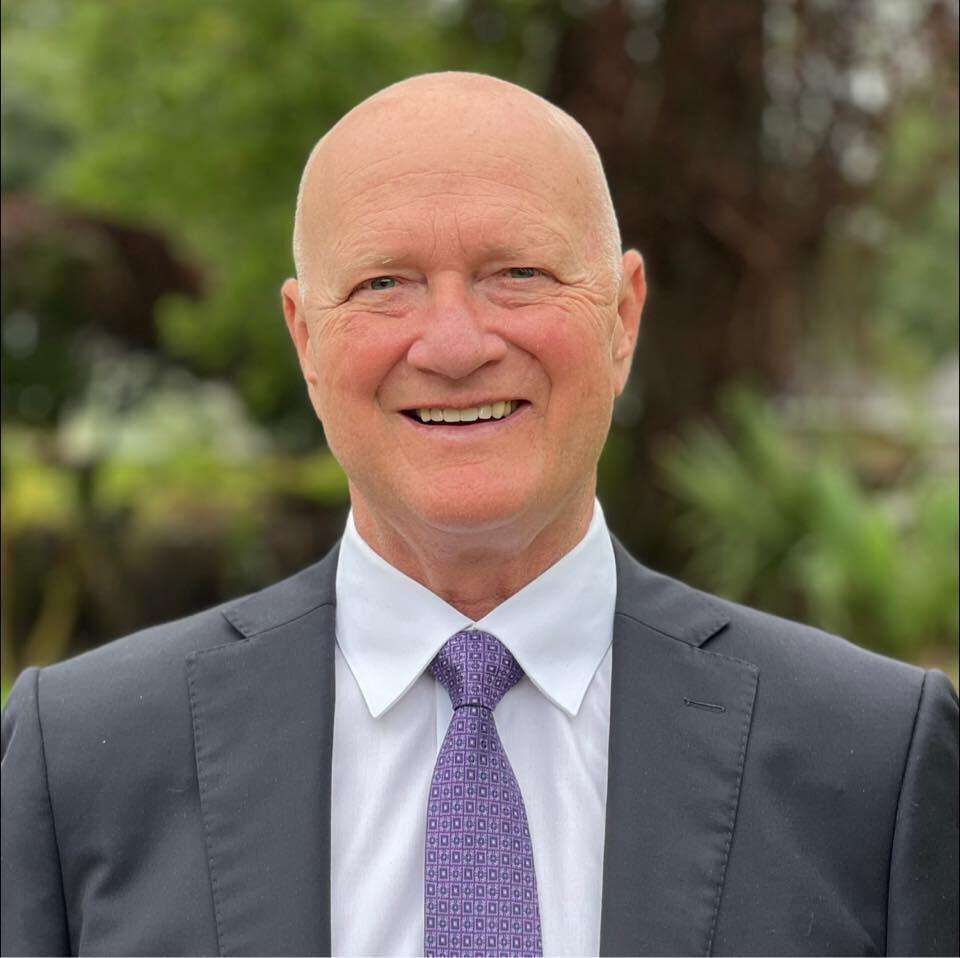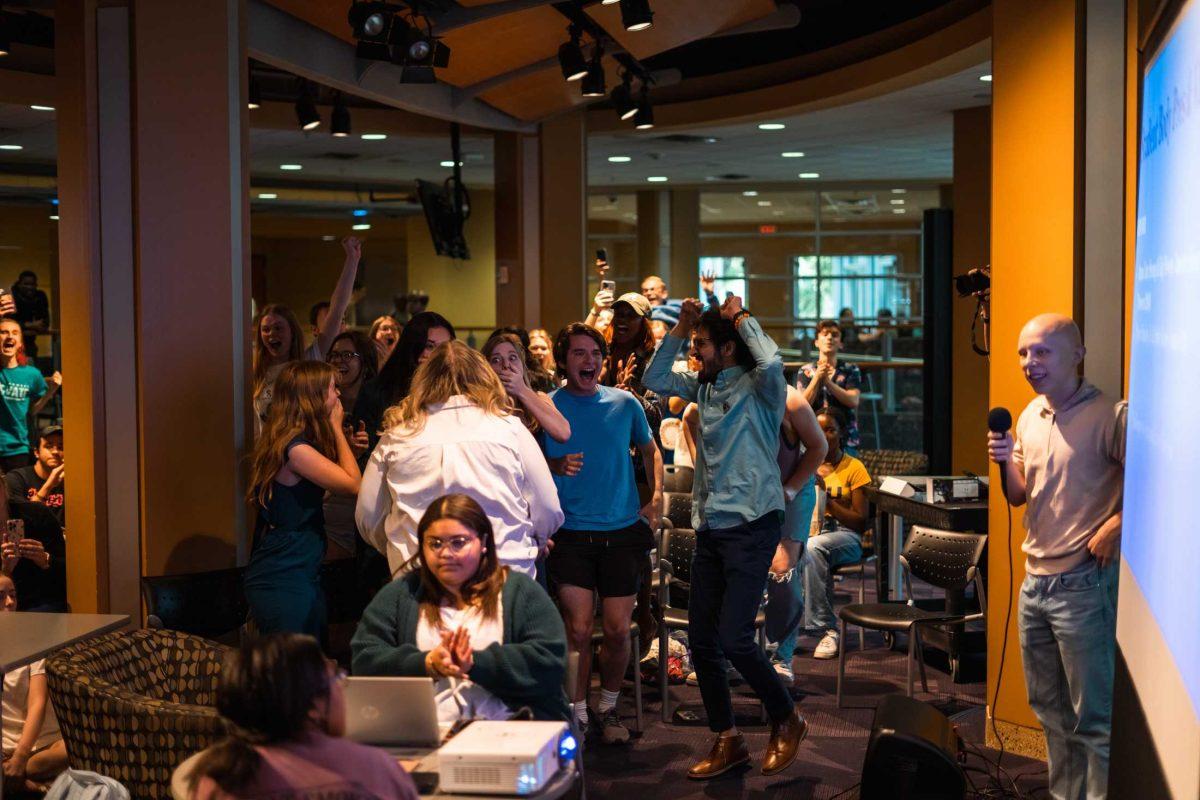Flipping over newspapers with a campaign article on the front may seem harmless, but for Allyce Trapp, the act of interfering with another campaign could be grounds for disqualification from the Student Government presidential race.
SG Commissioner of Elections Allyce Trapp and her five-member election board oversee all things related to SG elections.
Their biggest focus is the pinnacle of SG showmanship — campaigning. In recent years, the election board rewrote the Student Government Election Code after conflicts during the fall 2013 presidential race.
Before voting opened, the 2013 commissioner of elections disqualified John Woodard and Taylor Parks and their Unite LSU ticket because they failed to turn in their financial statements on time. They went over budget. The ticket remained on the ballot and won the popular vote.
Unite LSU successfully appealed the disqualification and became the heads of SG for the 2013-14 school year.
To avoid this situation in the future, the election board established clearer campaign guidelines.
“After that, they rewrote the code, so now it’s a lot more straight forward,” Trapp said. “That was a big issue, but we’ve been good ever since then.”
No matter how much campaigns are willing to spend, there are guidelines for their budgets.
Tickets with a presidential and vice presidential candidate are allowed to spend $3,000 collectively, Trapp said. For every candidate on their ticket, they are allotted an additional $75.
Tickets can use this money for anything that will help their cause, with the exception of a few things. Trapp said exceptions include anything illegal or any incentives that might sway a vote.
The Election Code sets guidelines for how and when students can campaign. For example, passive campaigning, which includes launching social media, gathering support and making buttons or shirts, can occur any time, but tickets can only actively campaign, or distribute campaign paraphernalia, during a specified time.
The Election Code prohibits campaigning within 20 feet of any academic building.
“If you campaign within 20 feet of an academic building, you can be disqualified for that, because it’s interfering with students’ education,” Trapp said.
Putting fliers inside of bathrooms of academic buildings is a violation of this rule.
The Election Code is in place to ensure fairness between campaigns and the sanity of the students, Trapp said.
“Everybody hates campaigning,” Trapp said. “So we try to keep it within a certain amount.”
If a campaign member is not a part of a social media group before announcing their ticket, they are not allowed to post in that group about their run for SG.
Tickets are also not allowed to send messages to classmates through Moodle about their campaign.
Consequences for minor infractions, like widespread littering, are normally fines that would be included in the campaign budget.
A day of active campaigning can be taken away for major infractions like decorating a car without consent from the owner.
Most consequences are distributed on a case-by-case basis, but after the dispute with the Unite LSU ticket, there are well-defined grounds for disqualification like not disclosing financial statements, disregarding the Code of Student Conduct, going over budget and failing to comply with a penalty.
“Campaign rules are here because we want to make it an even playing field for everyone.” Trapp said. “We want everyone to have the same opportunity to win.”
Revised campaign laws to govern Student Government presidential race
March 2, 2015
Chloe Huff
SG Commissioner of Elections Allyce Trapp and her five-member election board oversee SG elections.
More to Discover










